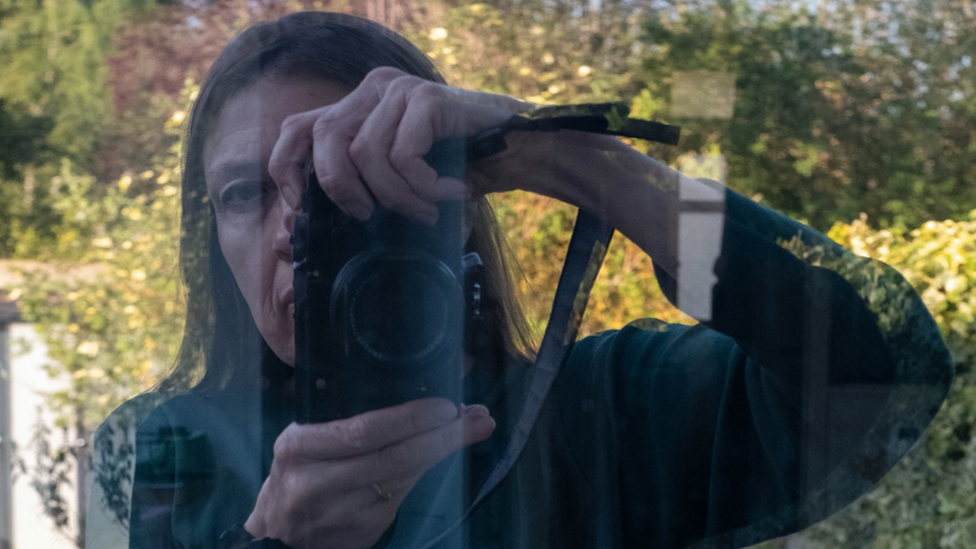Anglesey: Blindness is 'no barrier' for teenager
- Published
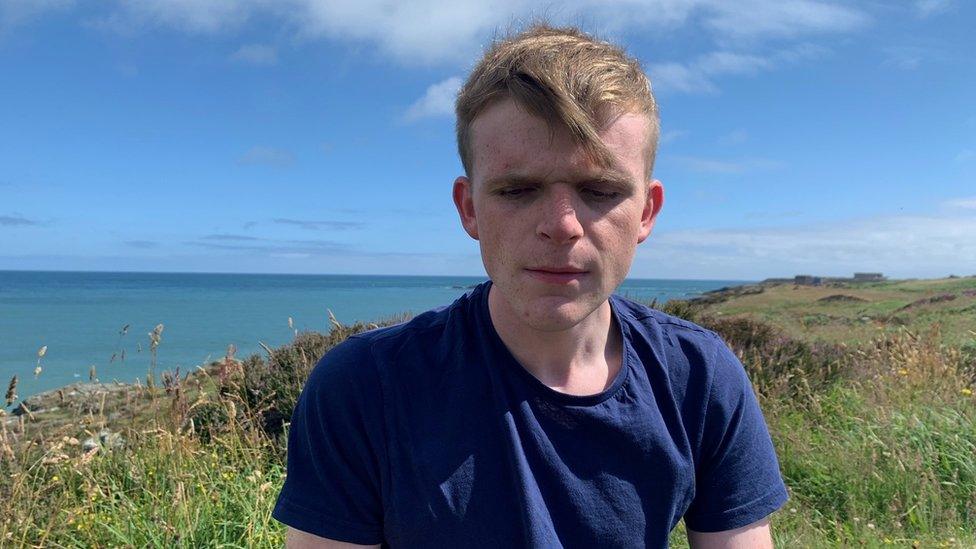
"There is always a will and a way to find or figure a way out of doing something," says Hari
"How do you manage to do that?"
Hari Roberts, from Anglesey, has become used to taking people by surprise.
The 19-year-old was born with Leber Congenital Amaurosis, external, and has been blind since birth - but that has not stopped him leading an action-packed life of climbing, horse riding, swimming and running.
"When there's a will there's a way," he said.
"I have just done a high-roped climbing course with my dad, I've been horse riding since I was nine years old, I've been skiing and I've gone on to do a triathlon to raise money, and I like running, swimming and walking.
"I've shown from a young age that being blind is no barrier if you're motivated and truly believe in yourself."
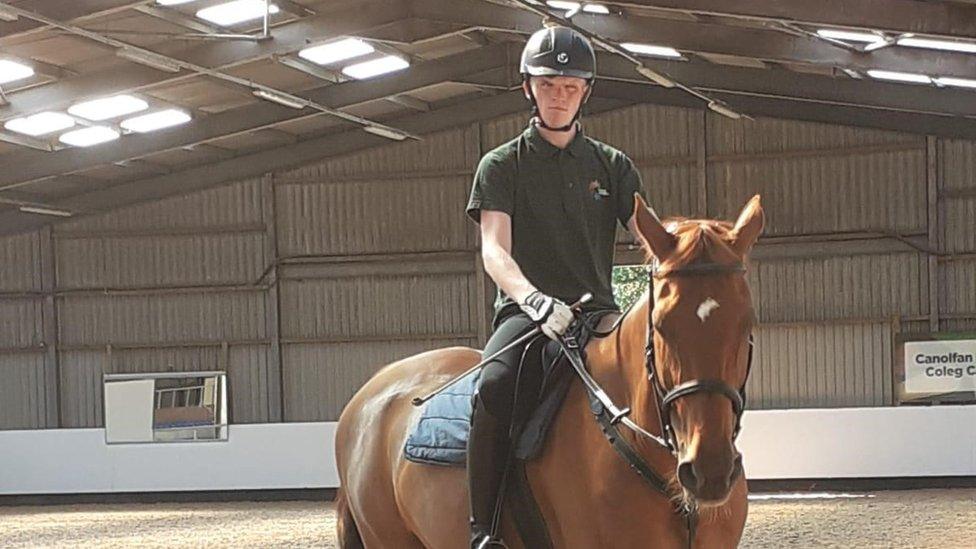
Hari plans to go to university and eventually work with horses and riders as a nutritionist
He said his parents taught him from a young age that blindness did not have to limit him and he hopes to carry on making the most of his opportunities.
"In day to day life it doesn't make anything different," he said.
"There is always a will and a way to find or figure a way out of doing something.
"It's easier do everything on my own without people giving me a hand, apart from when I go the shop because I can't see things on the shelf."
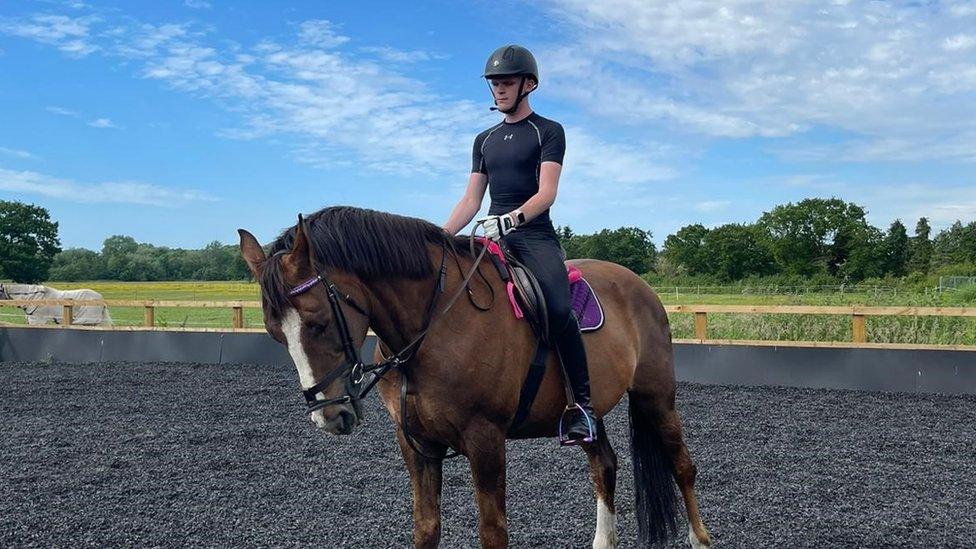
Hari has been horse-riding since he was nine years old
Hari is in the final stages of completing his equine care and management course at Coleg Cambria in Northop, Flintshire.
He cannot drive so has been travelling by train from Anglesey each day- a round trip of almost five hours.
He said after completing his course he hoped to go to university and eventually work with horses and riders as a nutritionist.
Hari underwent a corneal replacement procedure in 2020 and is still recovering, but there was a slight breakthrough with his vision.
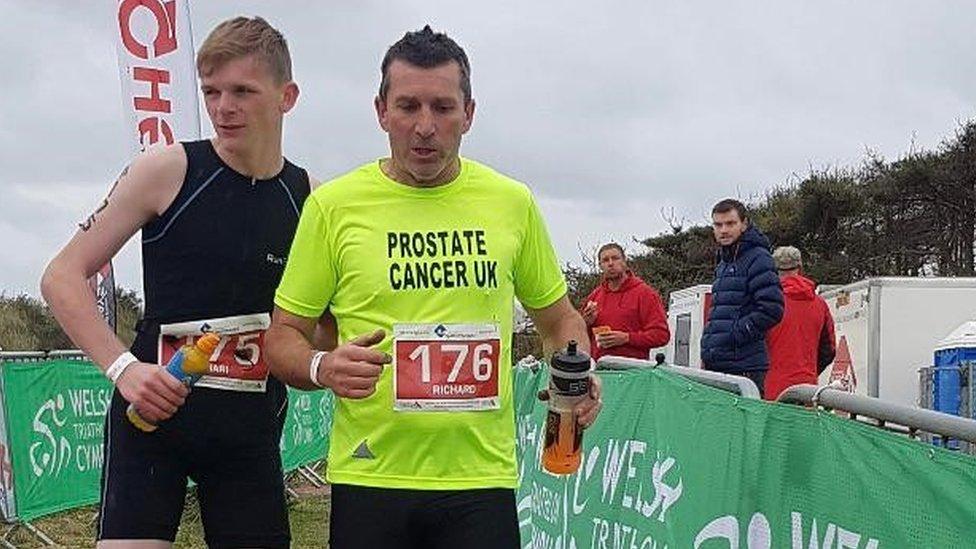
Hari Roberts enjoys climbing, horse riding and triathlons
"I remember being able to see the outline of curtains in the window for the very first time," he said.
"That was an uplifting and emotional moment, but largely I can't see anything and that's always been the way."
He said he has become used to people's reaction to him.
"The first question I get asked is: 'How do you manage to do that?'," he said.
"The answer I give is: It's more of a case of figuring out how to do things. Just because they have a condition it doesn't mean they can't do things."
He hopes his active lifestyle can be an example to other young people like him.
Like anyone else, he said it was important people with disabilities "learn from their mistakes, so if they fall, they will remember it and they won't do it again, but it won't help them in the long run if you constantly mollycoddle them".
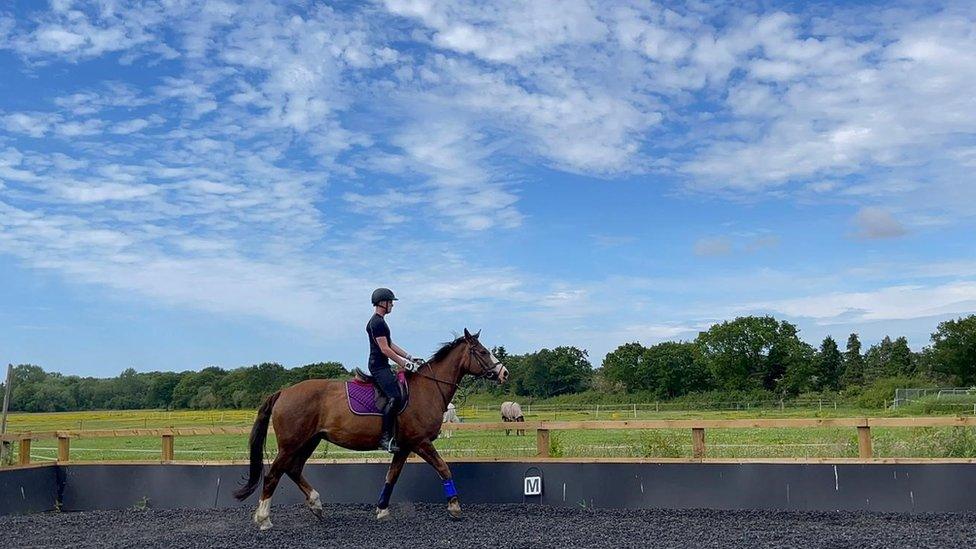
Hari's college lecturer says his "attitude and ability are unparalleled"
"Nine times out of 10, if you want to do things your body does the work, not your eyes, so whatever you want to do there is always a will and a way to do it, you've just got to figure out a way to do it for your own personal needs," he added.
Natalie Cliffe, Hari's equine lecturer at Northop, said: "His attitude and ability are unparalleled, as is his strength of character.
"We will really miss him here at the college but know Hari will go on to have a long and successful career in the industry."
Related topics
- Published23 June 2018
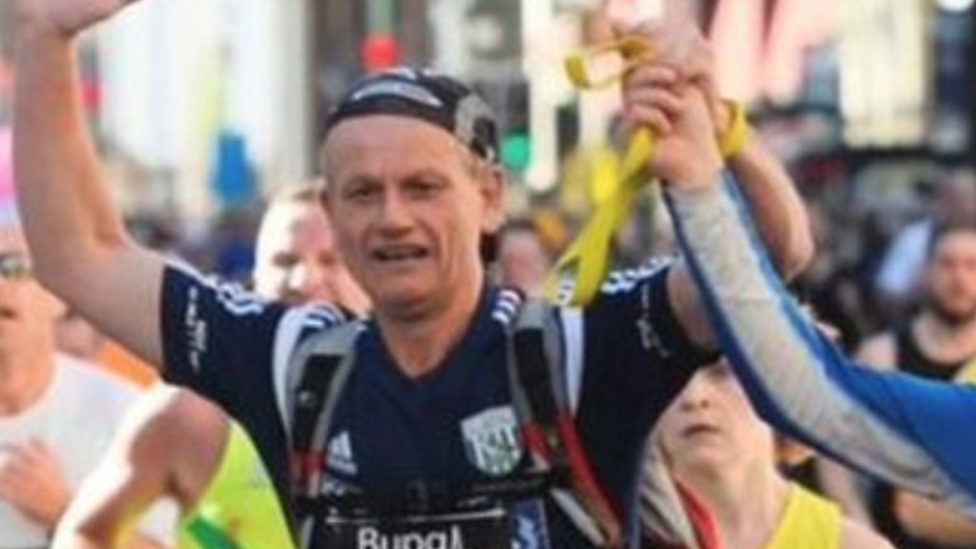
- Published11 July 2021
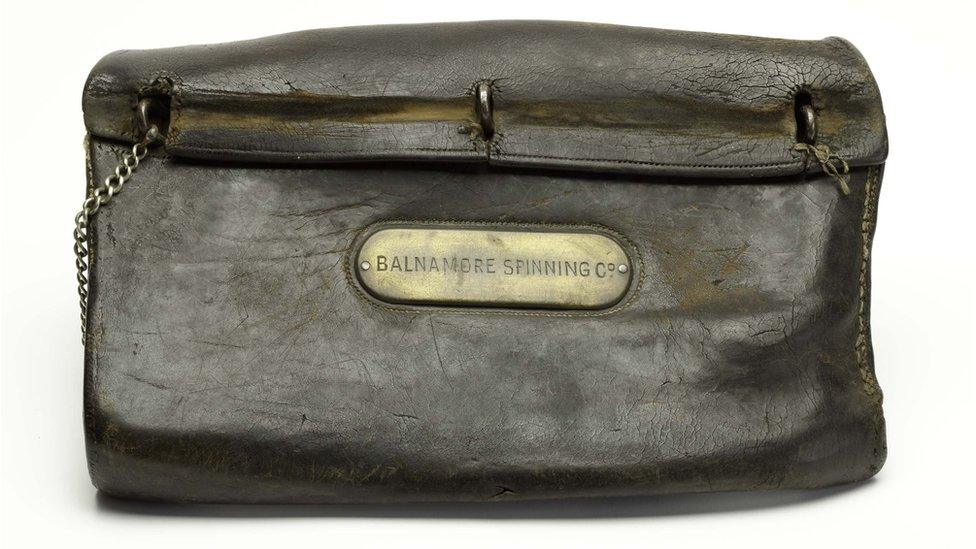
- Published13 May 2021
